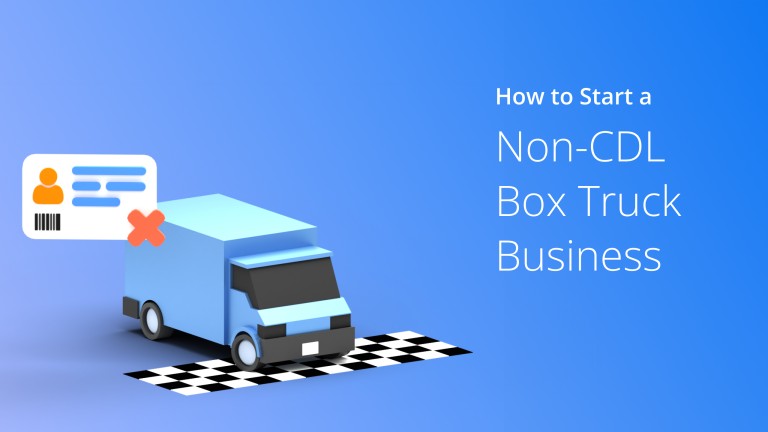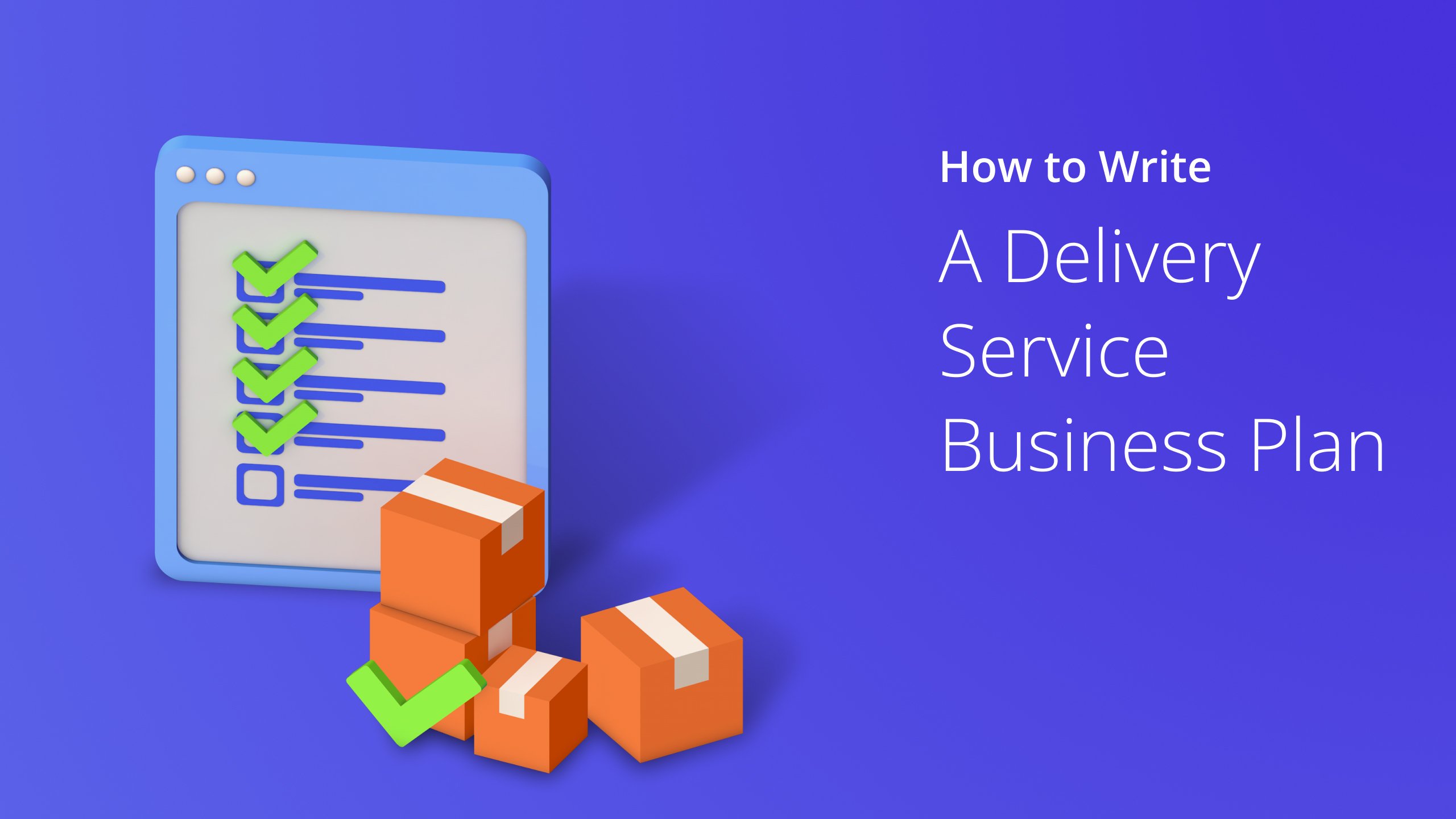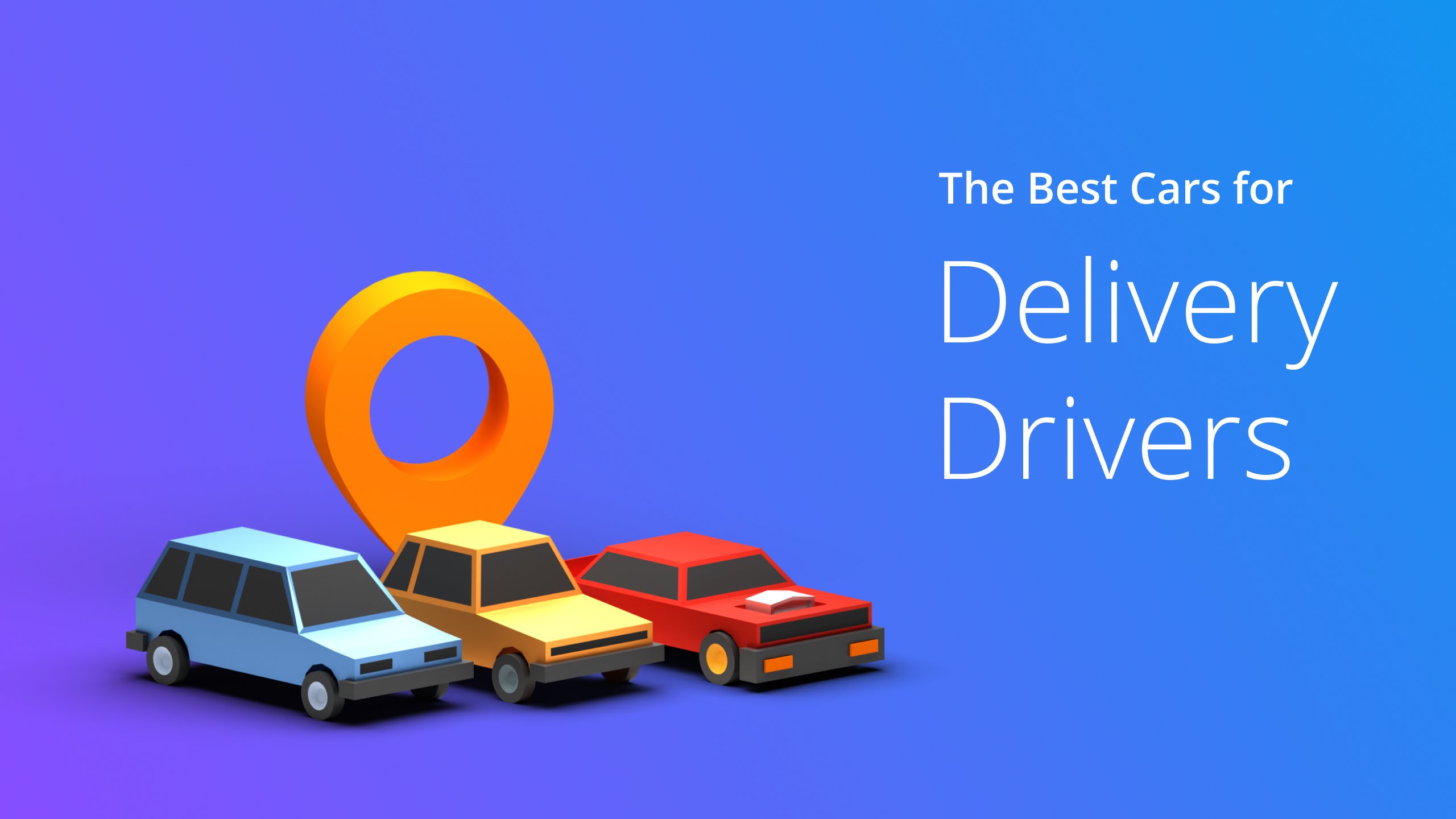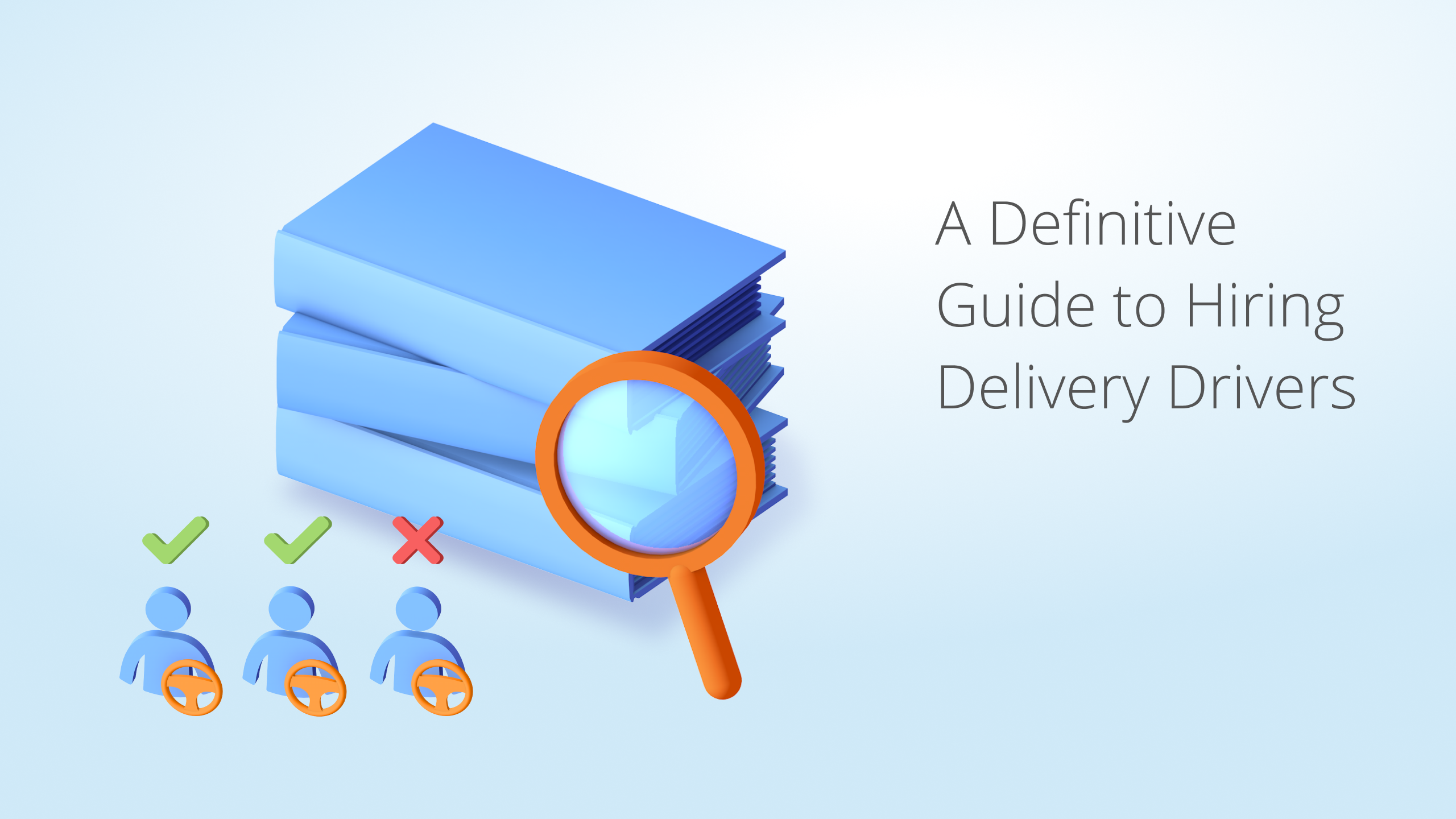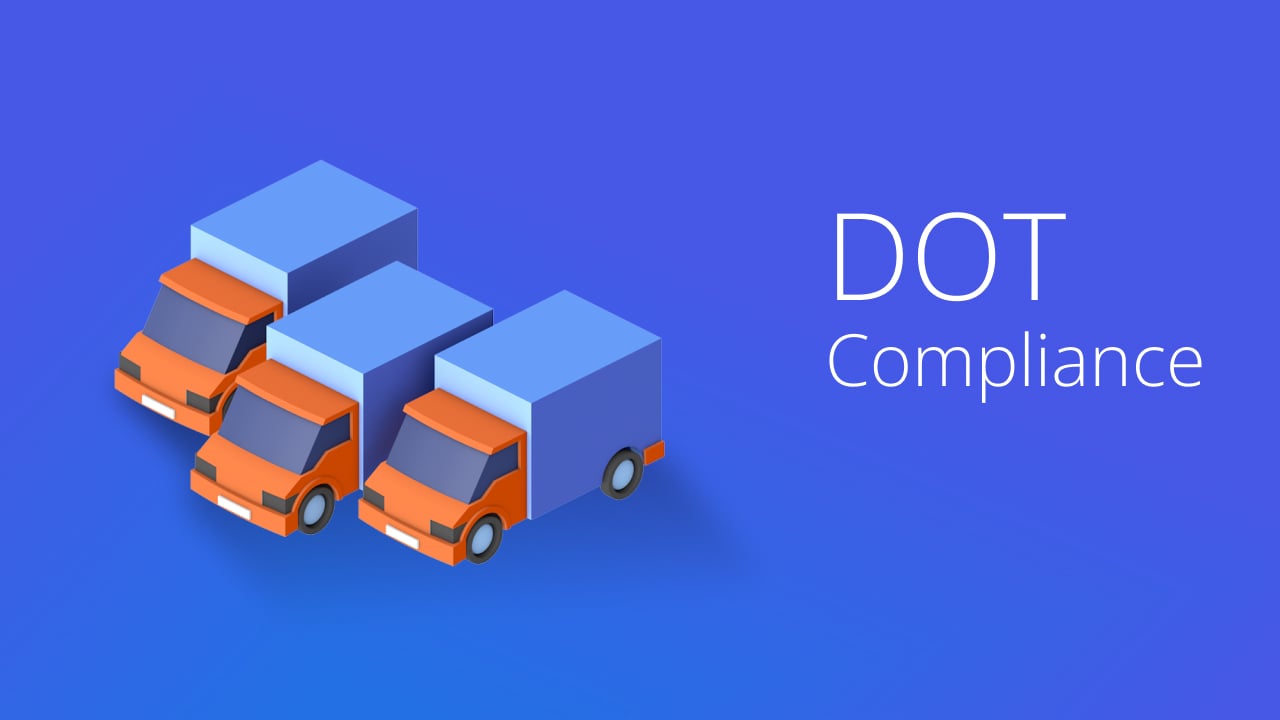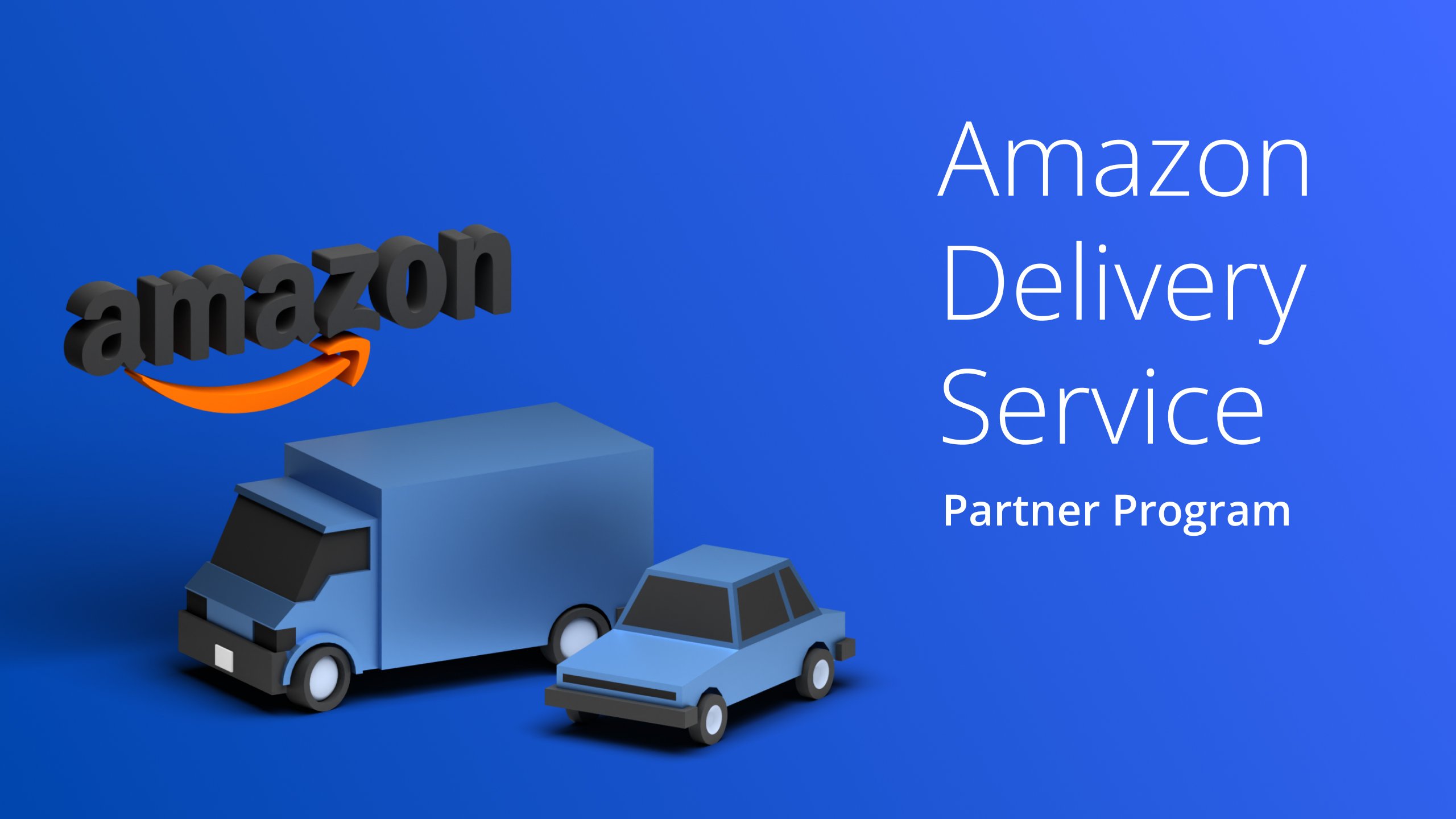The primary appeal of a non-CDL box truck business is to simplify your entire business operations.
CDL stands for commercial driver’s license, a specialized license required to operate heavy and potentially hazardous vehicles in commerce.
A non-CDL box truck business means there will be some limitations on delivery size, but you will still get limitless possibilities in delivering packages, inventory, and other goods.
You will be surprised to know that initiating this business requires very few steps. Here’s how to start your own non-CDL box truck business.
Truck Route Navigation App

Table of Contents
10 Steps To Start A Non-CDL Box Trucking Business
1. Draft A Business Plan
The first thing you have to do when starting a non-CDL business delivery service is to draft a business plan. This is where market research plays a huge part.
Consider the area and location of your scope and look at other businesses already in the industry.
Can you identify the focus of these other delivery businesses/companies? What services continue to be unmet in the market?
Once you have this information, draft the business structure, including your company name and a description of your services.
It’s also best to start a business bank account to stay on top of all business-centered finances.
2. Decide Your Niche & How Much To Charge
If you’ve identified the gap in the market from number one, you can then decide on the specific niche for your trucking business.
This will narrow your target market and give you a solid set of clients looking for your services.
For example, consider a non-CDL delivery service specializing in delivering medical supplies. In this case, your target audience is doctors, clinics, and hospitals in your area.
It would do you good to invest in specialized medical equipment and target your marketing efforts on these specific customers.
At this point, you can also start determining how much to charge for your delivery services.
Factors like the size of the load, distance, and rising fuel cost will determine how much you should charge your clients so you can make a handsome profit.
For long-distance loads, you can consider charging by the mile.
Want To See For Yourself How Route4Me Can Help Make Your Non-CDL Box Truck Business Successful?

3. Find Startup Funding
Securing funding should also be one of your top priorities because your trucking business couldn’t possibly run without inevitable startup costs.
You can raise capital for your own business through the following ventures:
- Bank loans
- SBA (small business administration) guaranteed loans
- Government grants
- Friends and family
- Crowdfunding
- Personal savings
In our opinion, the best way to get startup funding is through SBA-guaranteed loans. These typically don’t have significant interest rates and have comfortable payment terms.
4. Secure Business Permits & Licenses
The delivery service business model typically requires you to obtain necessary permits and licenses from the local, state, and federal governments.
First, select a business entity type, decide on its legal structure (PLC, sole proprietorship, limited liability companies, etc.), and obtain an Employer Identification Number.
Register your business with the Federal Motor Carrier Safety Administration (FMCSA) to get a Department of Transportation number and a Motor Carrier Authority number.
You’ll also need to complete a suitable carrier registration.
You’ll also need to obtain federal regulations, licenses, and other permits associated with starting your business and industry-specific licenses and permits.
You will also need to obtain health licenses from the Occupational Safety and Health Administration.
Other requirements include city and state permits and licenses, which vary from location to location.
5. Narrow Down Your Target Market
It’s now time to narrow down your target market for your business. Most of the time, your target market will be small business owners looking for efficient transport services.
Start brainstorming how your business will differ from those already established in the industry. You may consider a specific niche or become a jack-of-all-trades kind of business.
6. Invest In A Good Box Truck
Investing in a suitable box truck or cargo van is integral to establishing a non-CDL transport company. Make sure that your chosen vehicle fits your and your customers’ needs.
A cargo van is best if you deliver large cargo, like household appliances, furniture, or oversized specialized equipment.
On the other hand, you can get away with using a sedan or an SUV if you deliver smaller packages.
You will also find that a smaller vehicle will allow you to transport items through traffic a lot faster and are great for short-distance trips.
It’s also worth investing in fuel-efficient vehicles so you can save some money on fuel.
7. Find Excellent Drivers
As an owner/operator, it should be a no-brainer to get excellent drivers on board your trucking company. They will be the face of your business and the first to interact with your clients.
It will be wise to start with a comprehensive onboarding program to train them in work processes, health and safety, tools and software use, and customer satisfaction.
Furthermore, ensure your drivers are armed with ratchet straps, moving blankets, dollies, and handcarts.
These can reduce heavy lifting and lugging whenever your drivers are bringing goods.
8. Build Your Business Reputation
It takes time to build a solid business reputation. When starting a non-CDL business, you’re not going to have the most clients, so establishing a great relationship with the few who trust you is crucial.
Make sure to give your first few customers business cards so they can refer you to others who may be looking for similar services.
9. Invest In A Good Route Planner Software
A good and reliable truck routing software or route planner app like Route4Trucks is crucial to all delivery services.
Route4Trucks takes the manual planning and optimizing of the most efficient routes out of your hands, so you can focus on more important things like growing your business.
If you operate a multi-stop non-CDL business, you must be armed with the fastest and easiest sequence of stops, saving you plenty of time and fuel.
Route4Me also allows you to track your drivers in real-time to stay on top of your trucking business without asking them to call for updates.
Multi-Stop Route Planner App

10. Secure A Business Insurance
The great thing about a non-CDL transport company is that it doesn’t need any other insurance besides the state-required liability insurance plan on the vehicle.
However, it isn’t to say that that’s all you need for your trucking company — it’s best to protect yourself with commercial liability insurance, which covers you and the cargo you transport.
It also gives your clients peace of mind to know that their cargo is protected.
Can You Start A Non-CDL Box Truck Business With One Truck?
Yes, absolutely. Starting a non-CDL box truck business with just one truck is possible.
Make sure it fits your and your customers’ needs and has all the right fittings for your business operations.
Ensure that your business and truck have all the necessary paperwork, such as a non-commercial driver’s license, permits, and proper insurance.
You can continue building your company along the way, and in no time, you’ll be able to afford a second one for expansion.
Can You Hire Non-CDL Drivers For A Box Truck Business?
Yes, you can hire non-CDL drivers for a box truck business. However, that does not mean you are not subject to DOT regulations.
A non-CDL vehicle is a medium-duty vehicle with a gross combined weight of fewer than 26,000 pounds. If the vehicle exceeds this, you will need to hire a driver with a CDL.
Your drivers cannot drive non-CDL vehicles unless the DOT regulations are not followed. Make sure to check your state’s Department of Transportation for the requirements of CDL vehicles.
Frequently Asked Questions (FAQs) about Box Truck Businesses
Can you start a box truck business with no money?
How much can a box truck delivery business make a week?
Is owning a box truck delivery business profitable?
How much can you make with a box truck delivery with Amazon?
Final Say
A non-CDL box truck business is one of the most profitable today, but only if you know how to run it right.
If you start by researching the current market and identifying the industry players, you’ll notice the market gaps that your company can fill.
Doing so will allow you to channel your marketing materials directly to potential clients.
Secure the business license and necessary paperwork to run the trucking business. Having these in place will also make potential customers trust you more.
Hire skilled drivers and train them with the necessary SOPs. You want to make sure that they leave a lasting, positive impression.
Lastly, use reliable and efficient route planning software to take the manual planning and optimizing routes out of your hands.
With Route4Me, you can rest assured that you will save on time and fuel, as it will give you the most efficient routes every day.
Get in touch with us for your free trial today.
Want To See For Yourself How Route4Me Can Help Make Your Non-CDL Box Truck Business Successful?

